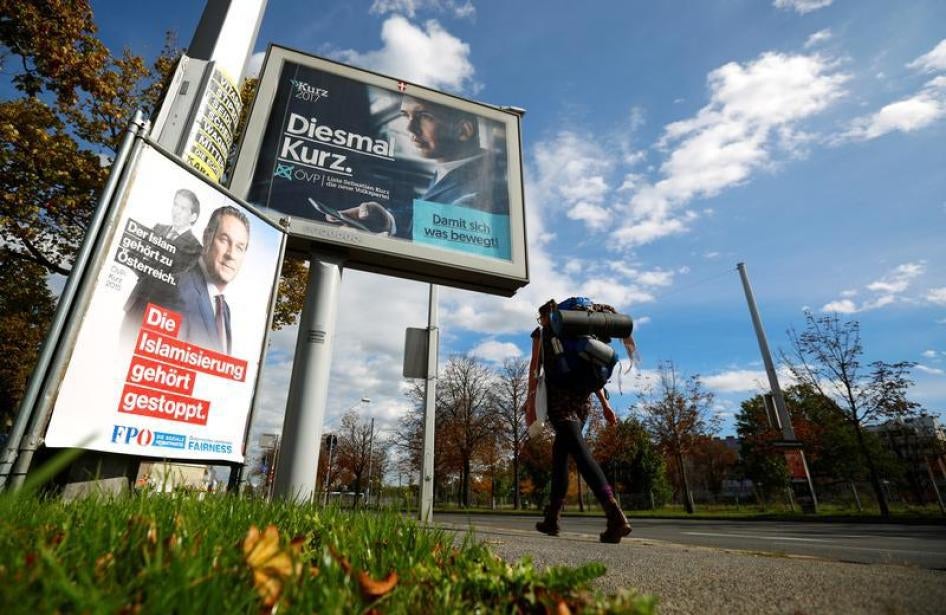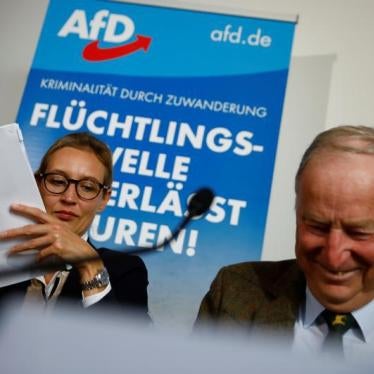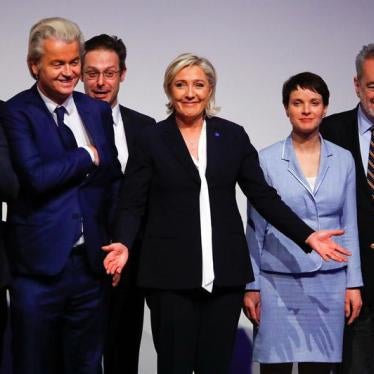Earlier this year, a political theory emerged predicting that we had hit “peak populism.” In Austria, voters twice rejected a far-right president in favour of one from its Green party. In France, Marine Le Pen’s Front National was defeated. In the Netherlands, Geert Wilders' Party for Freedoms (PVV) failed to win expected votes. The centre ground was winning once again, the theory went.
That prediction was premature.
On Sunday, Austria’s national elections – much like Germany’s earlier elections – saw radical right populists win substantial vote shares, while mainstream political parties embraced right-leaning positions to win votes.
In Austria, the centre-right People’s Party (ÖVP), led by Sebastian Kurz, is likely to enter into coalition with the radical right populist Freedom Party (FPÖ). Both parties have an anti-immigrant agenda. When Austria last had an ÖVP-FPÖ government in 2000, other EU governments sought to isolate and sanction it.
An EU already grappling with Hungary and Poland, which both have governments implementing policies that undermine core EU values of the rule of law, human rights and democratic safeguards, is unlikely to contemplate similar action against Austria now. Close attention is now needed on the policies of the new Austrian government, given that Kurz campaigned on an agenda to replicate the appalling Australian model for outsourcing responsibility for asylum-seekers.
In Germany, the Alternative for Germany (AfD), an anti-foreigner, anti-Muslim, and anti-EU party, entered Lower Saxony’s parliament in regional elections on Sunday. Last month it became the third largest party in the Bundestag, which it entered for the first time, after federal elections.
Late last week in the Netherlands, four parties led by incumbent Prime Minister Mark Rutte finally formed a government coalition six months after the election, shutting out Wilders’ populist PVV. But the PVV is the second largest party in Parliament and the official voice of the opposition. And two of main coalition parties – Rutte’s Party for Freedom and Democracy (VVD) and Sybrand Buma’s Christian Democratic Alliance (CDA) – ran campaigns copying the PVV’s toxic anti-immigrant dogwhistle playbook.
Be in no doubt: the normalization of radical right populism poses a serious threat to the principles of equality, non-discrimination, and the rule of law at the heart of the European project.
Mainstream politicians in Europe need to ask themselves some hard questions: Can these standards and hard fought for rights simply be set aside for the sake of political success? Or are mainstream parties willing to stand up for them and defend the rights of migrants and minorities?
What kind of future is in store for the European Union depends on the answers.
|
Dispatches
Radical Right Populist Success in Elections Endangers Human Rights in Europe
Mainstream Parties Adopting Anti-Immigrant Platforms to Win Votes
Your tax deductible gift can help stop human rights violations and save lives around the world.
Region / Country
Most Viewed
-
June 3, 2025
“They’re Ruining People’s Lives”

-
January 25, 2024
“We’re Dying Here”

-
April 27, 2021
A Threshold Crossed

-
November 25, 2019
A Dirty Investment

-
November 19, 2012
Losing Humanity






